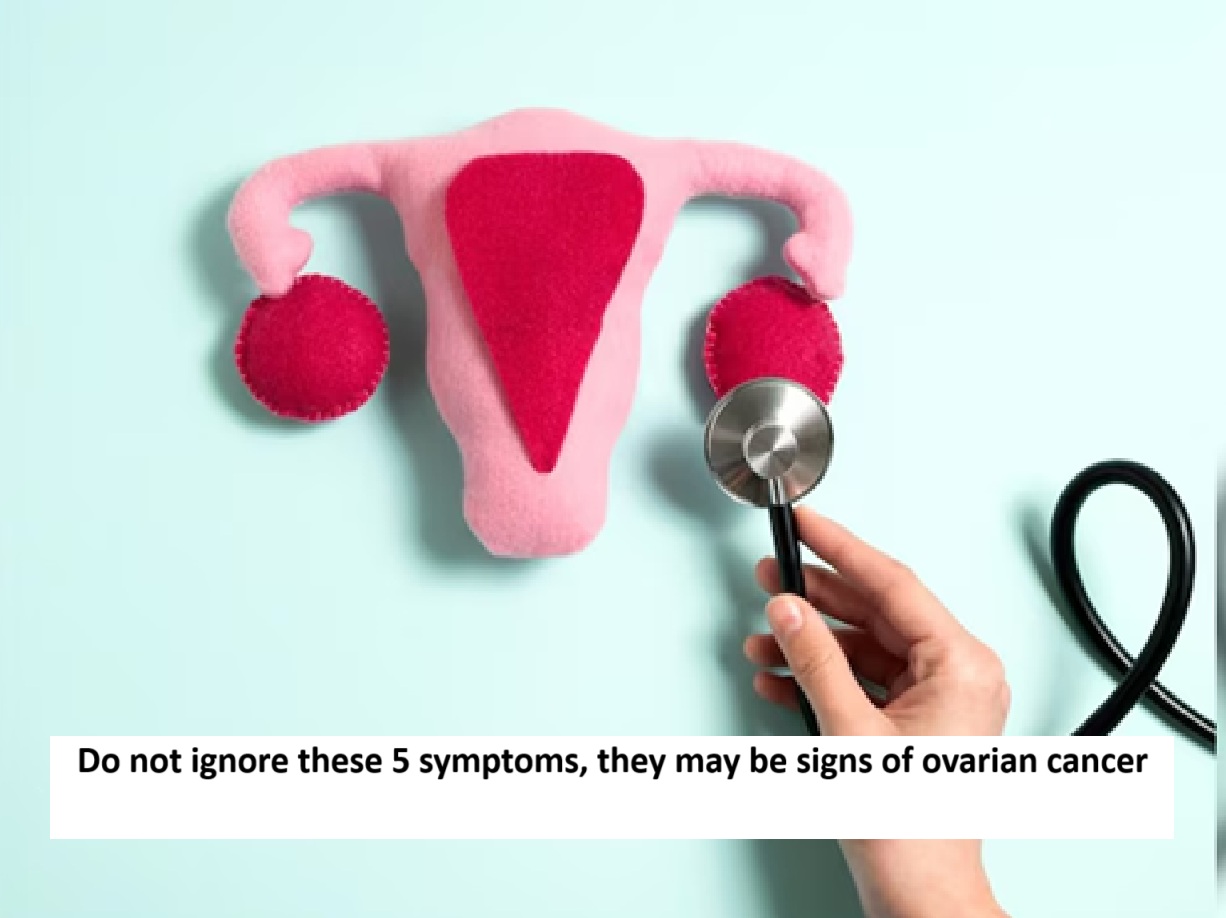
News Topical, Digital Desk : Ovarian cancer (cancer of the ovaries) is a serious disease that occurs in women. It is often detected late because its initial symptoms are very common, which people often pay attention to late. This cancer develops when there is uncontrolled growth of cells in the ovaries.
Symptoms of Ovarian Cancer
The symptoms of ovarian cancer are not clear in the early stages, but some signs should not be ignored, such as-
- Stomach bloating or frequent gas formation- If there is constant bloating or heaviness in the stomach, then it can be a sign of ovarian cancer.
- Pelvic or abdominal pain – Persistent pain or discomfort around the ovaries.
- Loss of appetite or feeling full quickly - feeling full after eating only a little.
- Frequent urination- a sudden change in urination habits.
- Fatigue and weight loss – Losing weight without any effort and feeling constantly tired .
- Digestive problems – Problems like constipation, indigestion or nausea.
If these symptoms persist for more than two-three weeks, a doctor should be consulted immediately
Ways to prevent ovarian cancer
Although it is not possible to completely prevent ovarian cancer, its risk can be reduced by adopting some measures.
Lifestyle improvements
- Healthy diet- Eat a diet rich in fruits, vegetables, whole grains and protein . Avoid processed foods and high-fat foods.
- Regular exercise- Doing physical activities keeps the body healthy and reduces the risk of cancer.
- Avoid smoking and alcohol – these habits increase the risk of many types of cancer.
Use of contraceptive pills
Taking birth control pills for a long time can reduce the risk of ovarian cancer. However, they should not be taken without consulting a doctor.
Pregnancy and Breastfeeding
Becoming a mother and breastfeeding also reduces the risk of ovarian cancer to some extent.
Genetic Tests
If there is a history of ovarian or breast cancer in the family, it would be wise to get tested for BRCA gene mutations. This can help identify the risk and take precautions.
Routine checkups
- Pelvic exam- Get regular checkups done by a gynecologist.
- Ultrasound or blood test (CA-125 test) – Women at high risk should get these tests done on the advice of a doctor.
Surgical Option
For women who have a high risk of ovarian cancer, doctors may recommend prophylactic oophorectomy (surgery to remove the ovaries).
--Advertisement--

 Share
Share



